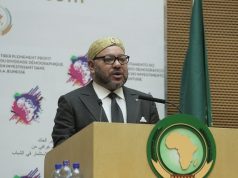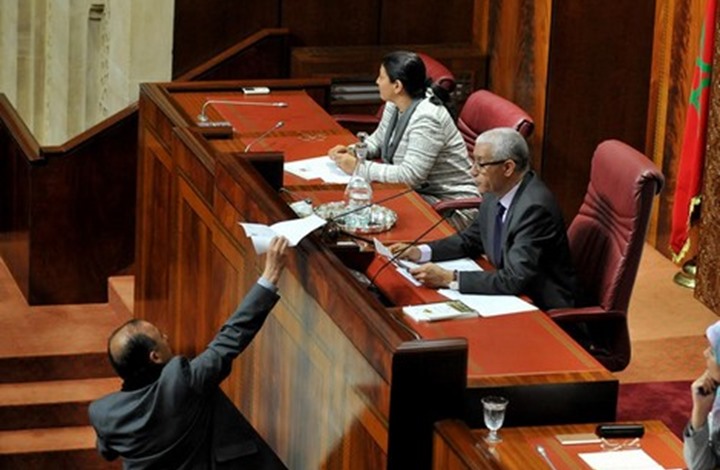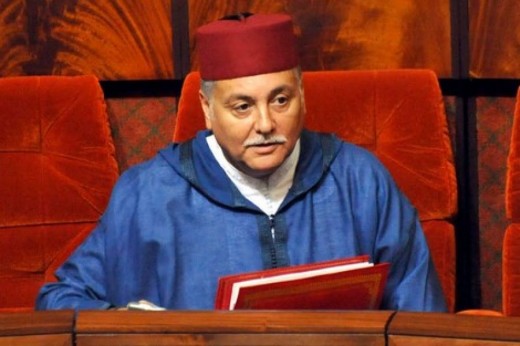[symple_box color=”blue” text_align=”left” width=”100%” float=”none”]

Imed Lassoued is a Tunisian journalist. He earned his Bachelor’s degree in literature from the Faculty of Arts, Letters and Humanities La Manouba of Tunis, Tunisia. You can follow him on Twitter at: @imed2010 [/symple_box]
Tunis, Tunisia— Without banging any drums, Tunisia has emerged victorious despite the chaos, blood, setbacks amid the forces that at a certain time where on the edge of turning the whole fabric down and take us to the unknown. After the success of the legislative and presidential elections and the formation of a new government in a volatile region, Tunisia has then set its foot on a firm ground. This fledgling democracy will only prosper and sharpen if it is met by a political will and clear determination to make it a model that could be emulated by others undergoing the same process of regime- change. All this is good if we look from an outside vantage point. But if draw nearer to the scene gradually, as Saleem Sinai’s metaphor of the movement toward the cinema screen implies, “the stars’ faces dissolve into dancing grain: tiny details assume grotesque proportions; the illusion dissolves- or rather, it becomes clear that the illusion itself is reality… (Midnight’s Children, 165-66).’’ The challenges ahead of us are of paramount importance. Each sector is in dire need for a quick reform and revamp so as to make a valuable leapfrog. The newly sworn-in government lead by Mr Habib Essid is Tunisian’s hope towards development, stability, and prosperity. This government has to deliver as quickly as possible so as to reassure young and old Tunisians that they could dream of a better future. The 166 votes out of 2018 for this newly formed government should be a springboard to launch a bunch of new measures. Therefore we should not jump for joy rather we should be vigilant and held account any minister for failing or veering from the path. Implementing the promises vowed on the inauguration of the new government before the Assembly of Representatives is the only benchmark whereby to gauge the feasibility of this cabinet. Much in the air slow on the ground policy cannot by anyway work out.
There is not doubt Tunisia has not enough financial resources whereby to deliver generously on ordinary people and especially the low income ones who are still finding it hard to cope with the rising of food prices. However, well crafted decisions could make things better and ends meet. First, the subsidy program should be revised. The unbridled soaring of prices should be halted. This measure is not a matter of a minister’s signature or a political decision; things are interrelated. There are other pressing issues that once tackled the wheel of the economy could run smoothly. Security is a priority for Tunisians and for local and foreign investors. The recent crackdown on some sleeping cells and the dismantling of their logistic network was highly appreciated. The security forces have now enough amounts of confidence and experience so as to make quick and successful interventions before the execution of any terrorist attack. While writing these lines tension is rising in the south where local dwellers are asking for the lifting of taxes on individuals crossing the border to Libya for commerce and the creation of jobs. These demands are legitimate but what I cannot fathom is that the said strikes are aimed at, or will be aimed at, financial ends. Adding salaries will only go at the expanse of creating new jobs for unemployed who are still waiting; the jobless rate in Tunisia hovers around 15%. Only a courageous deal between the government and the private sector could bring this rate down to less than 15%. Many analysts say that this is possible unless there is no willingness. The Strikes and sit-ins have only nefarious ramifications and may not encourage business owners to hire and train newly university and training centers graduates.
The dwindling of our tourism income is an urgent issue that needs to be tackled. This sector needs bold actions so as to make it a major contributor to the well being of our economy. Put in a nutshell, the “All Inclusive’’ Policy has proved unsuccessful and in need for revamp. Hotel owners and staff should be listened to before bringing in new measures. Moreover, we should opt for new markets and think seriously about crafting a promising policy that aims at attracting Gulf, Chinese, and Japanese holiday makers.
Undoubtedly primary, secondary, and higher education should be reviewed and looked at with a critical eye. The poor ranking of our higher educational institutions worldwide is a proof. A quick look at our programs, school disciplines, leveling, and the major goals assigned for Tunisia for the long run should be pondered upon. School drop out is a serious if not a burning matter if we bear in mind that in 2012 about 100.000 dropped out of schools. This huge number could pose a threat if they are not given enough training, as they can easily be lured to clandestine immigration and fell prey to promises of heaven from terrorist networks. School drop out hides other social problems mainly divorce between couples which have been on the rise coupled with a 15.5/ of Tunisians living below poverty line, according to credible sources. The promotion of knowledge is also a corner stone in the building of an educated population. As the government looks set to bring down food prices to a reasonable level, the price of books should also be considered.
There is clearly still a long way to go. Tunisia should embark on a landmark reform quickly but firmly. I have not gone through all the sectors that need to be tackled, but it seems that Tunisia has no time to waste thinking over the future. The journey is risky but worthy of taking. As the challenges are great and the resources are inadequate I can only understand the doubts of some over the feasibility of Mr. Essid’s government. The rising political awareness among the masses gained from the transitional phase coupled with hope, confidence, and optimism could only bring forth promising output that definitely touches every single Tunisian. In the mean time, while setting set to sail in a new path fighting corruption is as necessary as water to every creature. For this only a healthy justice system could make such a fight winnable. Despite everything, the people still want to make a change – and they will eventually triumph.
And God is the grantor of success.
[symple_box color=”blue” text_align=”left” width=”100%” float=”none”]

Imed Lassoued is a Tunisian journalist. He earned his Bachelor’s degree in literature from the Faculty of Arts, Letters and Humanities La Manouba of Tunis, Tunisia. You can follow him on Twitter at: @imed2010 [/symple_box]





